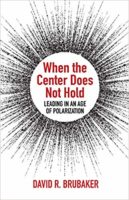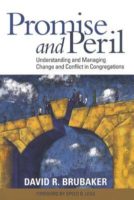All of us who worship in or work with congregations know that each congregation develops a unique rhythm in its corporate life. These rhythms are organized both around seasons of the year (e.g., “summer is our slow time”) and around significant holy days and sacred texts (e.g., the celebration of Passover, or the lectionary cycle). Such rhythms not only provide a sense of order and meaning, they also create a cycle of creativity and rest that alternatively stimulates new energies and restores tired bodies and souls.
Our personal lives also develop daily, weekly, and seasonal rhythms. When my sleep cycle is disrupted or my weekly Sabbath rest ignored, I tend to become more irritable and less present in the moment. And because I’m a professor and a consultant with a heavy teaching and consulting schedule during the academic year, I’ve learned that I need to take time each summer (usually during the month of July) to recharge. When I fail to do these things, there is always a cost—to me and/or to those close to me.
Richard Rohr, in Falling Upward: A Spirituality for the Two Halves of Life, suggests that there is an even more basic rhythm between what he calls the “first half of life” and the “second half of life.” In the first half of life we need order and structure—so law and tradition become the necessary boundaries within which we grow and develop. Rohr suggests that relatively strict parenting and clear rules are helpful in the first half of life, as “we ironically need limit situations and boundaries to grow up (p. 30).” The product of successful first half of life work, Rohr concludes, is a “loyal soldier” who understands and respects the rules of life. But this loyal soldier is also ego-driven and focused on career and reputation.
The challenge in the transition to the second half of life (usually somewhere between our mid-30’s and our mid-50’s, if it happens at all, according to Rohr) is to “discharge” our loyal soldier. Because our ego has become wrapped up with this identity, we “normally will not discharge our loyal soldier until he shows himself to be wanting, incapable, inadequate for the real issues of life (p. 49).” When we finally let go of our “loyal soldier” identity, what it most feels like is dying—as “the ego hates losing, even to God (p. 47).”
It is this most fundamental rhythm—of birth and death and rebirth—that Rohr is pointing to. We build up our “loyal soldier” identity in the first half of life—only having to discharge him or her in the second half in order to experience a deeper spiritual life. And a successful transition to second half of life spirituality usually requires “soul friends, gurus, confessors, mentors, masters and spiritual directors for individuals (p. 157).” In other words, we are unlikely to complete the trek solo.
So how do our congregational and quotidian personal rhythms connect with this fundamental first half/second half rhythm of which Rohr speaks? I believe that it is through entering deeply into our personal rhythms (particularly of work and rest/renewal) and congregational rhythms (of both celebration and lament) that we prepare ourselves for this larger rhythm—of discharging the loyal soldier and opening ourselves to a larger and more inclusive spirituality. When we regularly practice letting go of the small things, we become more capable of releasing the big things.
As we practice our personal rhythms (of striving and relaxing) and our corporate rhythms (of joyous celebration and deep lament) we prepare ourselves for the necessary work of the second half of life—letting go of the ego-driven “loyal soldier” and welcoming the wise elder in its stead. We may have to discharge the loyal soldier on multiple occasions until the wise elder fully occupies its place. But many of our personal and congregational rhythms, if practiced with deep intention, are designed to help us accomplish just that.
David Brubaker has consulted with organizations and congregations in the U.S. and a dozen other countries on organizational development and conflict transformation. He is the author of Promise and Peril, on managing change and conflict in congregations, and When the Center Does Not Hold, on leading in an age of polarization. David recently retired from his role as Dean of the School of Social Sciences and Professions at Eastern Mennonite University, and is now a Professor Emeritus of Organizational Studies.



